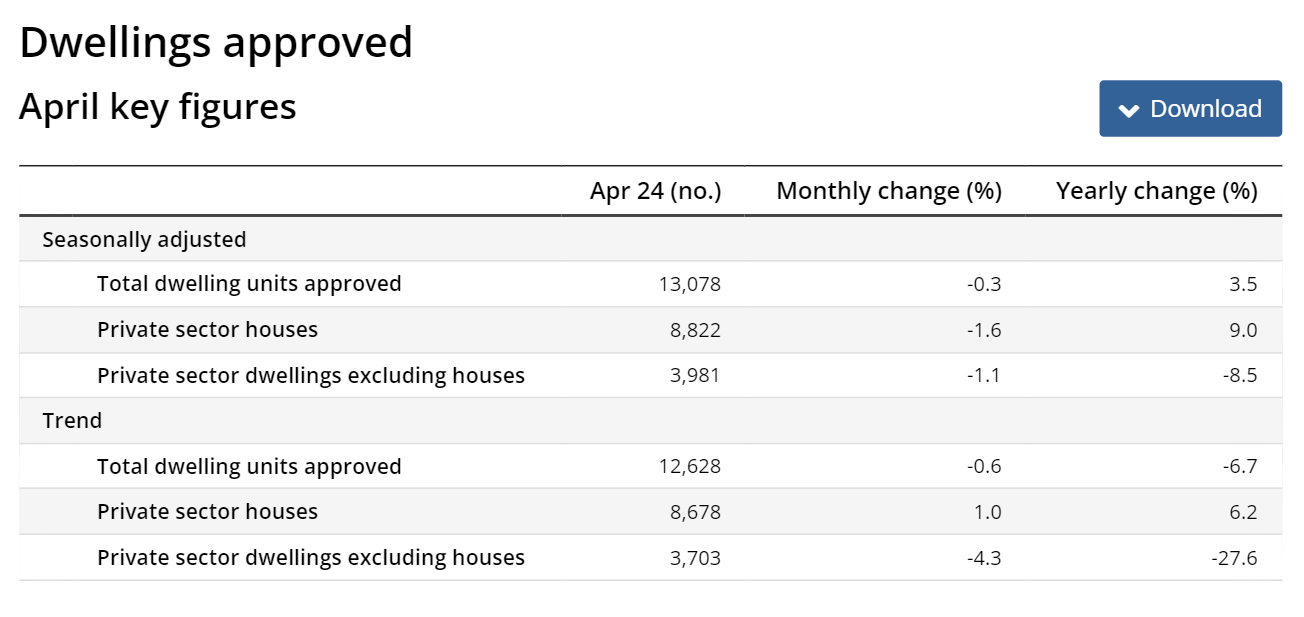

The total number of dwellings approved fell by 0.3% in April, following a 2.7% rise in March, according to seasonally adjusted data released by ABS.
“Approvals for private houses fell 1.6%,” said Daniel Rossi, ABS head of construction statistics, in a media release. “Approvals for private sector dwellings excluding houses also fell 1.1% in April in seasonally adjusted terms.”

Total dwelling approvals fell in Tasmania (-16.1%), New South Wales (-4.5%), and Western Australia (-0.9%). Conversely, rises were recorded in South Australia (13.9%) and Queensland (5%), while Victoria remained flat in April.
Approvals for private sector houses decreased in New South Wales (-5%), Victoria (-2%), Queensland (-0.2%), and South Australia (-0.1%), but saw an increase in Western Australia (3.5%).
The value of total building approved fell by 3.8%, following a 13.8% rise in March.
The value of total residential building decreased by 3.2%, which included a 3.8% drop in new residential building and a 0.4% rise in alterations and additions.
The value of non-residential building approved fell by 4.6%, after a 21.7% rise in March.
A drop in dwellings approved in April and a sharp decline in approvals from two years earlier due to higher interest rates points to a worsening shortage of housing in Australia, according to Tim Keith, managing director of Capspace.
“The sharp fall in building approvals over the last two years will keep upward pressure on property prices as the housing supply needed to accommodate a growing population falls well short of demand,” Keith said.
“Clearly, higher interest rates are weighing on the construction of units and houses, as well as the high level of inflation for building construction materials.”
The high cost of housing is a main factor pushing up inflation, which will continue to exert upward pressure on the overall inflation rate. Housing is the highest weighted group in the CPI, accounting for around one-quarter of the basket.
“While property owners have benefited from price rises, investors should consider diversifying their portfolios into asset classes outside of property,” Keith said.
“Private credit can deliver investors yields close to 10% per annum and investors understand their capital has protection based on the stringent loan process, lending and compliance policies, along with the security taken over borrower assets.”
Further information is available in Building Approvals, Australia. Compare the latest figures with the previous month’s results.
Get the hottest and freshest mortgage news delivered right into your inbox. Subscribe now to our FREE daily newsletter.
